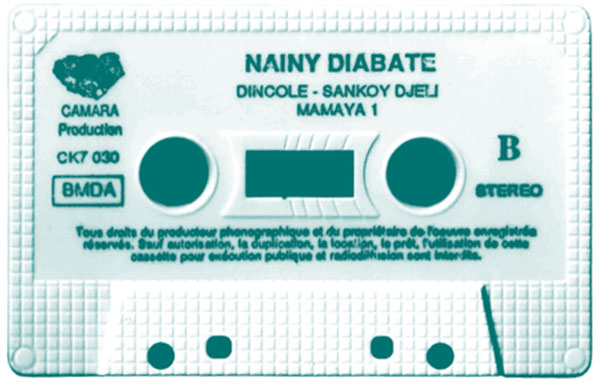

Various Artists
Included in this volume are artists such as Souley Kante, Sonikara, and Bande Kone, all cranking out hypnotic dance music that often uses the harp-like kamalen ngoni as its pulse. Lassana Tamoura’s “Lassana Boubou N’kana Kè Kiye” is a case in point. An ngoni kicks the track off, but is soon engulfed by electric instruments and Tamoura’s voice, which often cracks, an effect that only serves to add to the tune’s insistence. Daughter of Nahawa Doumbia, Doussou Bagayoko’s “Taman” shows vocal phrasing that anyone who’s spent time with Malian superstar Oumou Sangare’s music will recognize immediately. Bagayoko’s voice jumps to high notes and then quickly drops for the rest of the phrase in a style that’s classic Wassalou-region. So, if it sounds like Sangare, that’s only because Sangare sounds like Wassalou. Then there’s the Cuban influence, something that’s been part of Malian pop music since Les Maravillas du Mali fused Cuba and Mali over a 60 years ago. Abdoulaye Brévété’s “Faalé Mokoba” may have a glossily modern pop sheen, but the underlying roots haven’t budged a bit, even if a synth replaces what had been the ubiquitous flute solo of the earlier recordings.
The Paris-based Hot Mule label has worked directly with Camara, combing through thousands of tracks for the 12 compiled here, music which demonstrates a variety of Malian roots as well as crossover rhythms with neighboring countries such as Guinea or Cote D’Ivoire. More importantly, they demonstrate sounds played by and for the Malian diaspora in Paris, music that takes on contemporary pop strains without ever losing sight of its origins. This collection, and volume one, serve as a statement about what African diasporic communities bring to colonizing countries and perhaps a reminder of the importance of openness in the face of growing Western fascism and the “other-ising” ugliness that is so often at the heart of the ignorance that becomes support for such cruelty. Listen All Around: The Golden Age of Central and East African Music Na Hawa Doumbia Ghana Special 2- Electronic Highlife & Afro Sounds In The Diaspora- 1980-93 Dieuf-Dieul De Thiès
Search RootsWorld
|